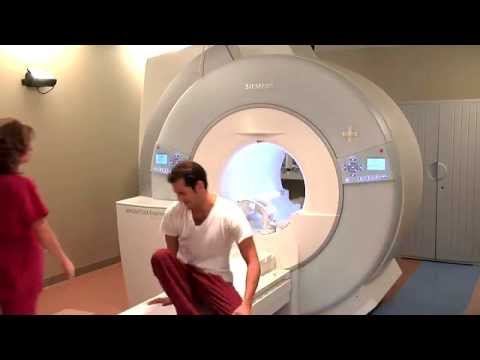
Hey there! So, you ever heard of MRI? It’s not just a fancy scan. It’s like a superpower for looking inside your head—without even needing contrast!
I mean, who knew? Right? This imaging technique gives us a peek at our brains in action. Whether you’re curious about brain health, or maybe you’ve been told to get one, it’s good to know what’s happening in there.
You might be wondering why an MRI without contrast is important. Well, it can help spot issues without adding any extra stuff into your system.
Stick around as we dive into what this means for your brain health!
Exploring Brain MRI Without Contrast: Key Insights and Diagnostic Capabilities
So, let’s chat about brain MRIs without contrast. You might be wondering what that even means, right? Well, here’s the lowdown: an MRI, or Magnetic Resonance Imaging, is a way for doctors to look at your brain without using any radiation. It’s like taking a super detailed picture of your noggin!
Now, when we say “without contrast,” we’re talking about not using a special dye that helps highlight certain areas. This is cool because it means less hassle and fewer potential side effects for you. Seriously, who wants to deal with that?
So, what can a brain MRI without contrast actually do? Here are some key points:
- Good for basic evaluation: It can show if there are any abnormalities in the structure of your brain.
- Detects problems: Things like tumors or strokes can often be spotted pretty clearly.
- No allergic reactions: Since there’s no dye involved, you won’t need to worry about allergic reactions related to contrast material.
- Less time-consuming: The procedure might take less time than one with contrast since there’s no need for additional steps.
But here’s the thing: while it can tell us a lot about your brain health, it might not show everything. For example, subtle issues like multiple sclerosis lesions could be missed sometimes if they would normally require that contrast.
Let me share a little story: I once had a friend who was super anxious about getting an MRI. She thought the whole process would be scary and the results devastating. But when she went in for the scan without contrast, she found it wasn’t as bad as she thought! The staff was friendly and talked her through everything. In the end, they found just some mild swelling—nothing too alarming.
Of course, everyone is different! If you ever find yourself needing this kind of imaging done—whether with or without contrast—it’s always best to chat with your healthcare provider first. They’ll have the best insights tailored just for you.
So remember: while MRIs without contrast are quite informative and super useful in many situations, they don’t replace professional healthcare advice or opinions! Always keep that convo open with your doc—it makes all the difference.
Detecting Brain Inflammation on MRI: Is Contrast Necessary?
So, let’s chat about brain inflammation and those MRI scans. You’ve probably heard about MRIs, right? They’re those fancy machines that give a peek inside your noggin. Now, when it comes to detecting brain inflammation, there’s often the question: is using contrast really necessary?
First off, what’s contrast? Well, it’s this special dye they sometimes inject into your veins before the scan. Think of it like adding a bit of color to a black-and-white photo. It helps doctors see certain things better. But do you always need it for brain inflammation? Let’s break it down.
Non-Contrast MRIs: You can get a pretty good look at the brain without contrast. They’ll still show abnormalities and any swelling that might be present. Often, doctors start with a non-contrast MRI because it can pick up plenty on its own.
When to Use Contrast: Now, there are times when contrast is super helpful. If there are some specific conditions or if the doctor is trying to rule out other issues—like tumors or infections—they might opt for contrast for a clearer view.
Here’s something to consider: sometimes people worry about the side effects of that dye stuff, but many folks tolerate it just fine. It’s all about what your doctor thinks based on your situation.
And here’s my little story: A friend of mine had migraines so bad she thought her head was going to explode! She got an MRI without contrast first. Turns out her brain looked relatively normal—not exactly what she expected! Later on, they did another scan with contrast just to make sure everything was in check—and bam! That revealed some information that helped her treatment.
In short, whether or not you need contrast really depends on what your doctor is looking for and your symptoms. Just remember: open communication with your healthcare team is key! Always talk openly about concerns or questions you might have about any kind of imaging tests.
So yeah, an MRI brain scan can be super insightful whether or not you use contrast—just make sure you get all the info from the pros before making any decisions!
Understanding Brain MRI: Does It Include Scans of the Neck?
So, you’ve been hearing a lot about MRIs, right? And maybe you’re wondering, “What’s the deal with brain MRIs? Do they check out my neck too?” Well, let’s break it down.
First off, a brain MRI is a special imaging test that helps doctors take a good look at your brain. It’s all about getting detailed pictures of the brain tissue and looking for anything unusual. But here’s the kicker: a typical brain MRI doesn’t automatically include scans of your neck.
If you need neck images too, that usually means you’ll have to get a separate scan called an MRI of the cervical spine. This is often done if there’s concern about your spinal cord or any issues going on in that area. You know how some things need special attention? Yeah, it’s kinda like that.
- The main focus of a brain MRI is your brain alone.
- A separate scan is needed if the neck area needs checking out.
- Your doctor will decide which scans you need based on what symptoms you’re having.
A quick story: My friend Jenna once had some strange headaches and her doc suggested an MRI. They did just her brain first. Turns out there was nothing alarming! But they also noticed her neck might be tense from stress. So, she ended up getting another scan that included her neck later on. All good now!
Just remember, if you have questions about your specific situation or symptoms, it’s always best to chat with a healthcare professional who can give you personalized advice. So don’t worry—you’re not alone in figuring this stuff out!
Can a Brain MRI Diagnose Ear Problems? Understanding the Connection
Sure, I’d love to chat about this topic with you! So, let’s dive into whether a brain MRI can help diagnose ear problems.
When we think of an MRI, we usually picture it as that fancy machine that takes detailed pictures of our brain, right? Well now, while an **MRI** is awesome for spotting issues in your brain, it doesn’t directly show ear problems. You might be wondering why. The thing is, the MRI focuses specifically on your brain tissue.
However, the ears and the brain are pretty closely connected. They work together to process sounds and maintain balance. For instance, if you’re having weird ear sensations or hearing loss, it could be linked to something happening in your brain even if the problem’s not directly in your ears.
Here are a few key points about this connection:
- MRI Role: An MRI can help spot conditions in the brain that might affect ear function.
- Symptoms Correlation: Symptoms like dizziness or tinnitus (ringing in the ears) could have roots in both areas.
- Indirect Insights: If a doctor suspects a connection between symptoms you’re experiencing and potential brain issues, they might use an MRI as part of their investigation.
Now, let me tell you a quick story. A friend of mine had these crazy dizzy spells and thought it was just her inner ear acting up—classic case of “I just need some water and I’ll be fine!” But after visiting her doc, they recommended an MRI just to rule out any other sneaky issues. Turns out, there was nothing major wrong with her brain; it was just a pesky inner ear issue! But hey, she got peace of mind knowing everything else was okay.
So while a **brain MRI** isn’t going to diagnose ear problems directly, it can still provide some useful information about what’s going on with your head overall. Just remember: no matter how much info you gather from articles like this one—or from friends’ stories—it’s always best to consult with healthcare professionals for real answers and guidance.
Anyway, hope that clears things up for you!
So, you know how sometimes you feel that little twinge of worry about your health? I mean, we all have those moments. A friend of mine—let’s call her Sarah—was feeling kind of off recently. Just some headaches and a bit of dizziness. So, she decided to get an MRI of her brain. No contrast used. It got me thinking about what an MRI really is and why you might choose the “without contrast” option.
MRI stands for Magnetic Resonance Imaging, which sounds way more complex than it really is. Basically, it’s like taking super detailed pictures of what’s happening inside your brain without using any radiation like X-rays do. Instead, it uses strong magnets and radio waves to create images—pretty fascinating stuff! When they do an MRI without contrast, they don’t inject any extra dye into your veins to highlight specific areas.
You might wonder why someone would go for just the plain version rather than the snazzier one with contrast. Well, maybe it’s just a routine check-up or some initial assessments where doctors are looking for general issues like tumors or structural problems. It can be less invasive and quicker too. The appeal is real!
When Sarah got her results back, there was relief in her eyes when the doc said that everything looked normal. No major issues! She had just been stressed out—it happens to the best of us! That moment reminded me how important it is to take care of our mental health too. Sometimes stress can manifest in weird ways that make us think something’s wrong.
But here’s the thing: while MRIs can provide a glimpse into our brain health, they aren’t foolproof or definitive answers on their own. They’re merely one piece of the puzzle alongside discussions with healthcare professionals who understand your complete story.
So if you’re ever in a situation where you need an MRI—whether with or without contrast—remember it’s all about getting better insights into what’s happening within you. And don’t forget: keeping tabs on your emotional well-being matters just as much as checking in on your physical health! Now that’s something to keep in mind!
